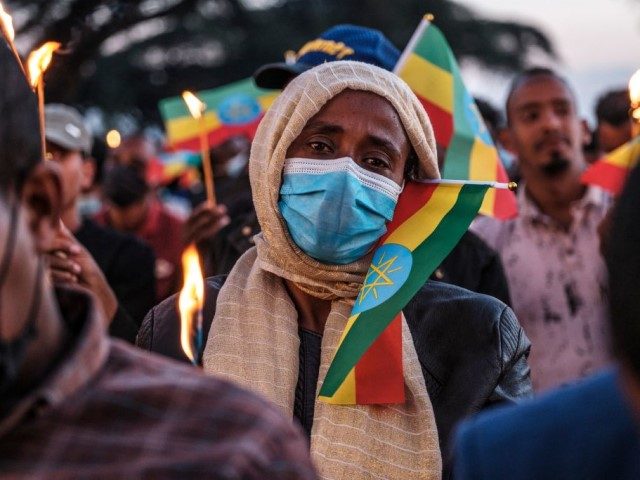Daniel Bekele, chief of the Ethiopian Human Rights Commission, said on Friday that a string of highly unusual and little-discussed police raids this month took at least eight Ethiopian government officials into custody, implicitly for human rights violations.
The detainees included employees of the national government posted to the rebellious Tigray region. At least one of them was reportedly a member of Prime Minister Abiy Ahmed’s Prosperity Party.
Bekele did not disclose the names of the detainees when speaking with Reuters on Friday, and his comments suggested his office did not demand the raids, since he was uncertain of the exact number of detainees. He did know that some of the people arrested in the raids, conducted on March 7 and 8, were taken from the Tigray region to be held in neighboring Afar.
Bekele, who previously held positions at both Amnesty International and Human Rights Watch, was himself arrested and beaten in 2005 by the national government for criticizing election procedures – then run by the Tigray People’s Liberation Front (TPLF), the political party the current government is in a civil war against. He was appointed to lead the Ethiopian Human Rights Commission by Prime Minister Abiy in 2019, and, while the TPLF has accused him of bias toward the national government, he commands a good deal of international respect.
Germany awarded Bukele its prestigious German Africa Prize in 2021, the first time the humanitarian commendation has been given to an Ethiopian official.
Reuters could not obtain official confirmation of the arrests from Ethiopian court or police officials but quoted a lawyer working for the detainees who said 12 officials have been arrested, plus an “activist” and an unidentified fourteenth individual. The lawyer identified one detainee as Abera Nigus, former head of the justice bureau in Tigray province.
“Others included a member of Abiy’s ruling Prosperity Party, an administrator for one of Tigray’s six zones and the deputy director of the regional state media,” the lawyer and another source familiar with the detentions said. No charges have been filed yet.
The Ethiopian government is still at war with the TPLF, the Marxist political party and militia that dominated Ethiopian politics before Abiy came to power. Over the past 16 months, the Ethiopian civil war has killed thousands of people, displaced millions more, and left the country in a state of humanitarian emergency, including widespread famine.
All sides of the conflict – including Ethiopian government troops, TPLF forces, tribal militia siding with one side or the other, and forces intervening from neighboring Eritrea – have been accused of massive human rights violations, including rape and torture.
The U.N. Human Rights Council (UNHRC) began an investigation of the Ethiopian conflict in December, noting that up to 7,000 people have been detained during the war, with many “detained incommunicado or in unknown locations.”
UNHRC said that nearly 90 percent of the population in the Tigray region now require humanitarian assistance, which remains difficult to provide because of persistent violence.
Perhaps not coincidentally, a few days before Bekele confirmed the unusual raids and arrests of early March, the Prosperity Party announced a major “reshuffle” that involved sacking 2,574 officials from various levels of leadership. Another 8,084 party members “were given severe and light warnings, demilitarization, and relocation” as punishment for ethical violations and competency issues.
On Thursday, the New York Times (NYT) reported a possible solution to the mystery of three aid workers for Doctors Without Borders (RSF) who were executed and dumped on the side of a road in the conflict zone in June 2021:
Investigators, senior aid officials and Ethiopian soldiers interviewed by the Times said the three aid workers were gunned down by retreating Ethiopian government troops on the orders of a commander who was infuriated to find them in an active combat zone.
“He said, ‘Finish them off’,” said Capt. Yetneberk Tesfaye of the Ethiopian National Defense Force, who said he heard the command over the radio.
The aid workers had their hands over their heads when they were shot, according to another soldier who witnessed the killings.
The Ethiopian government has long blamed the RSF murders on Tigrayan rebels, who had launched a major offensive to capture the regional capital city of Mekelle. The NYT came up with at least half a dozen military sources who said Col. Tadesse Bekele of the 31st Division of the Ethiopian military ordered his troops to fire on the aid workers’ vehicle, then instructed his men to gun them down in cold blood when they tried to surrender.

COMMENTS
Please let us know if you're having issues with commenting.